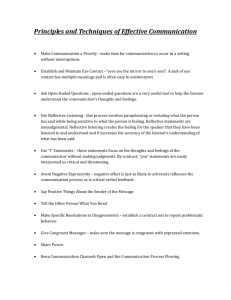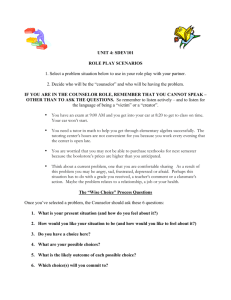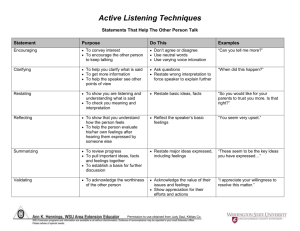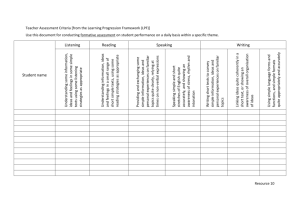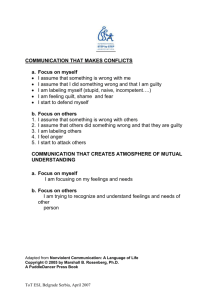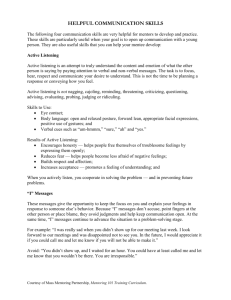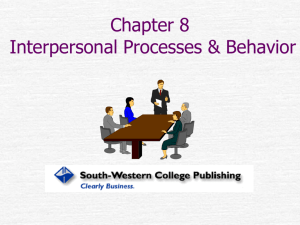Build Friendships With Good Listening Skills
advertisement
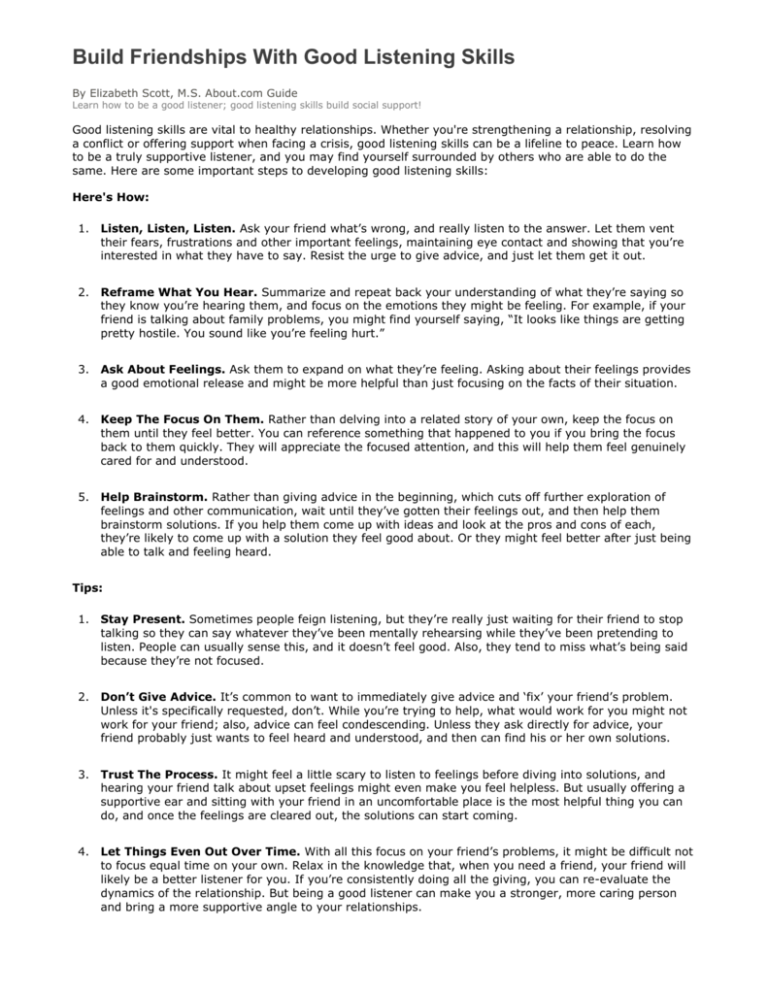
Build Friendships With Good Listening Skills By Elizabeth Scott, M.S. About.com Guide Learn how to be a good listener; good listening skills build social support! Good listening skills are vital to healthy relationships. Whether you're strengthening a relationship, resolving a conflict or offering support when facing a crisis, good listening skills can be a lifeline to peace. Learn how to be a truly supportive listener, and you may find yourself surrounded by others who are able to do the same. Here are some important steps to developing good listening skills: Here's How: 1. Listen, Listen, Listen. Ask your friend what‟s wrong, and really listen to the answer. Let them vent their fears, frustrations and other important feelings, maintaining eye contact and showing that you‟re interested in what they have to say. Resist the urge to give advice, and just let them get it out. 2. Reframe What You Hear. Summarize and repeat back your understanding of what they‟re saying so they know you‟re hearing them, and focus on the emotions they might be feeling. For example, if your friend is talking about family problems, you might find yourself saying, “It looks like things are getting pretty hostile. You sound like you‟re feeling hurt.” 3. Ask About Feelings. Ask them to expand on what they‟re feeling. Asking about their feelings provides a good emotional release and might be more helpful than just focusing on the facts of their situation. 4. Keep The Focus On Them. Rather than delving into a related story of your own, keep the focus on them until they feel better. You can reference something that happened to you if you bring the focus back to them quickly. They will appreciate the focused attention, and this will help them feel genuinely cared for and understood. 5. Help Brainstorm. Rather than giving advice in the beginning, which cuts off further exploration of feelings and other communication, wait until they‟ve gotten their feelings out, and then help them brainstorm solutions. If you help them come up with ideas and look at the pros and cons of each, they‟re likely to come up with a solution they feel good about. Or they might feel better after just being able to talk and feeling heard. Tips: 1. Stay Present. Sometimes people feign listening, but they‟re really just waiting for their friend to stop talking so they can say whatever they‟ve been mentally rehearsing while they‟ve been pretending to listen. People can usually sense this, and it doesn‟t feel good. Also, they tend to miss what‟s being said because they‟re not focused. 2. Don’t Give Advice. It‟s common to want to immediately give advice and „fix‟ your friend‟s problem. Unless it's specifically requested, don‟t. While you‟re trying to help, what would work for you might not work for your friend; also, advice can feel condescending. Unless they ask directly for advice, your friend probably just wants to feel heard and understood, and then can find his or her own solutions. 3. Trust The Process. It might feel a little scary to listen to feelings before diving into solutions, and hearing your friend talk about upset feelings might even make you feel helpless. But usually offering a supportive ear and sitting with your friend in an uncomfortable place is the most helpful thing you can do, and once the feelings are cleared out, the solutions can start coming. 4. Let Things Even Out Over Time. With all this focus on your friend‟s problems, it might be difficult not to focus equal time on your own. Relax in the knowledge that, when you need a friend, your friend will likely be a better listener for you. If you‟re consistently doing all the giving, you can re-evaluate the dynamics of the relationship. But being a good listener can make you a stronger, more caring person and bring a more supportive angle to your relationships.
